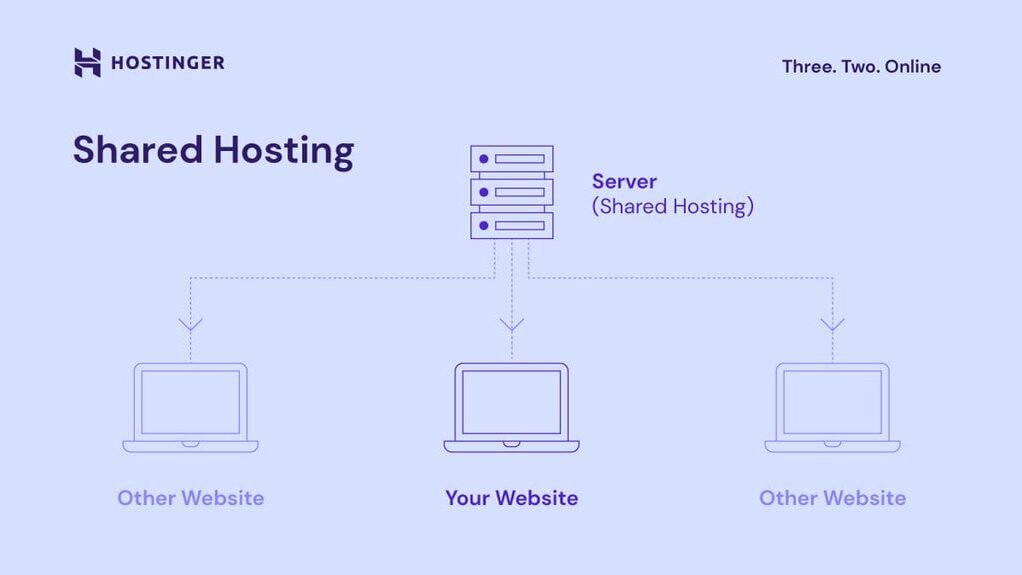Introduction
Shared hosting is a popular web hosting solution that caters to beginners and small website owners. In this blog post, we will dive into the world of shared hosting, exploring its features, advantages, and limitations. Whether you’re starting a personal blog, a small business website, or an online portfolio, shared hosting might be the perfect fit for your hosting needs.
What is Shared Hosting?

Shared hosting involves multiple websites sharing resources on a single server. Imagine it as living in an apartment complex where residents share amenities like the pool, gym, and parking. Similarly, websites on a shared hosting server share server resources such as CPU, RAM, and disk space. This cost-efficient model allows hosting providers to divide server costs among multiple users, making shared hosting an affordable option for those on a budget.
Advantages of Shared Hosting
Cost-Effectiveness:
Shared hosting is the most budget-friendly hosting option available. It is ideal for individuals and small businesses looking for an economical way to establish an online presence without breaking the bank.
User-Friendly Setup:
Shared hosting providers usually offer user-friendly control panels that simplify website management. These interfaces allow users to install popular website builders and content management systems like WordPress with just a few clicks.
Maintenance and Server Management:
The hosting provider takes care of server maintenance, updates, and security, relieving website owners from the burden of technical management. This leaves you with more time to focus on creating content and growing your online venture.
Customer Support:
Shared hosting plans often include customer support, which can be valuable for newcomers and non-technical users. The hosting provider’s support team can assist with troubleshooting, domain setup, and general inquiries.
Scalability:
While shared hosting has resource limitations, it is usually easy to upgrade to more advanced hosting options like VPS or dedicated hosting as your website grows and requires additional resources.
Limitations of Shared Hosting
Performance:
Since multiple websites share resources on the same server, performance might suffer during traffic spikes or if one website experiences a sudden surge in visitors. However, reputable hosting providers implement measures to mitigate these issues and maintain consistent performance.
Resource Allocation:
Shared hosting plans typically have predetermined resource allocations. If one website on the server consumes a disproportionate amount of resources, it could affect other websites’ performance on the same server.
Limited Customization:
Shared hosting environments may have certain restrictions on server configurations and software installations. This limitation could be a concern for advanced users requiring specific customizations.
Security:
While hosting providers implement security measures, shared hosting is inherently less secure compared to dedicated hosting. Security breaches on one website may potentially impact other sites on the same server.
Popular Shared Hosting Providers
Bluehost
Bluehost is a renowned hosting provider, offering reliable shared hosting plans with excellent customer support and beginner-friendly features. They provide a one-click WordPress installation and a 30-day money-back guarantee.
SiteGround
SiteGround is known for its exceptional performance and security features. Their shared hosting plans include daily backups, free SSL certificates, and a user-friendly interface for website management.
HostGator
HostGator offers affordable shared hosting plans with unmetered bandwidth and a website builder for easy customization. They also provide 24/7 customer support for assistance whenever needed.
Conclusion
Shared hosting offers an excellent entry point into the world of web hosting, particularly for beginners and small businesses. It’s affordability and user-friendly setup make it an attractive option for those starting their online journey. However, as your website grows and traffic increases, you may consider upgrading to more robust hosting options to ensure optimal performance and security.













